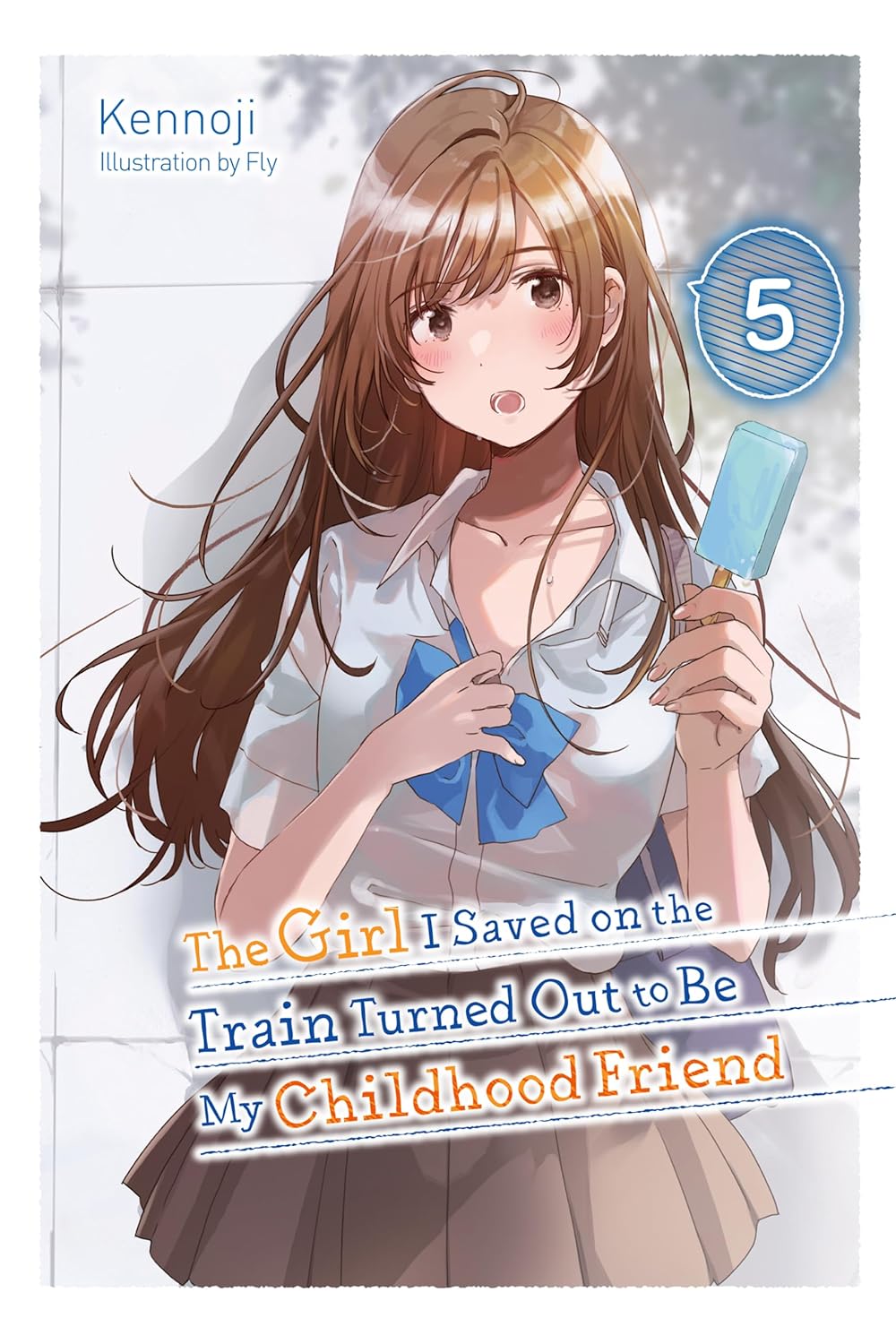By Kennoji and Fly. Released in Japan as “Chikan Saresou ni Natteiru S-kyuu Bishoujo wo Tasuketara Tonari no Seki no Osananajimi datta” by GA Bunko. Released in North America by Yen On. Translated by Sergio Avila.
I am reading too many of these high school romcoms, to be honest. There’s been a big glut over here the last few years, spearheaded by Oregairu and Tomozaki, but the best of them all have some motivation to them beyond “which girl is he going to end up with after finally having a clue beaten into him?”. You can’t simply ride on that alone, or you run the risk of… well, of being this series, which is running on fumes in terms of “I am not getting that these women are all throwing themselves at me”. Theoretically there should also be the film/acting subplot, and that does vaguely rouse my interest a bit. Hina is getting it ground in her face that acting is a series of failed auditions forever till your break, and Ai has gotten that break on the back of her idol work, but is dealing with the cattiness and fending off date requests that that entails. It SHOULD be interesting.
Ryou’s film is nearly finished, just requiring Ai to film some remaining scenes when she’s not doing her acting gig. He’s still trying to get Shizuka to star in his new film idea he’s had, but a) there’s no script yet, and b) she really doesn’t want to. It doesn’t help that her mother is overly worried about her, which is coming out as anger. It also doesn’t help that, as a result of that, Shizuku is lying to her. This leads to a run away from home plot!… that lasts about five pages. This series just can’t get that dramatic. As for Hina, since she’s still depressed about her failed audition, and lacking much else to do, she’s helping Ryou study for school… mostly by forcing him to do it. Ca they all get together in time for a summer festival? And will the girls manage to convince Ryou they like him?
This series is not much like Oregairu at all (Ryou wishes he had Hachiman’s narrative panache), but they do share one thing in common, which is that the relationship between the lead and his little sister is the best thing about the series. Mana remains the best character in this by a country mile, being cool, self=confident, chiding but also supporting her brother, and being friends with all his various girl friends. If she had a spinoff, I’d read it, mostly as it would not be this series. There’s nothing wrong with this except that it’s boring, and I keep waiting for a payoff that I know is a good 7-8 books away, if that. The reason that a lot of romcoms these days have the leads hook up early is that everyone got tired of series like these, where we know who will win (it’s Hina) but we have to watch Ryou being thick as a brick for ten more volumes before he gets it.
If you have to read every romcom out there, this is one. I think I’m going to drop it here.



